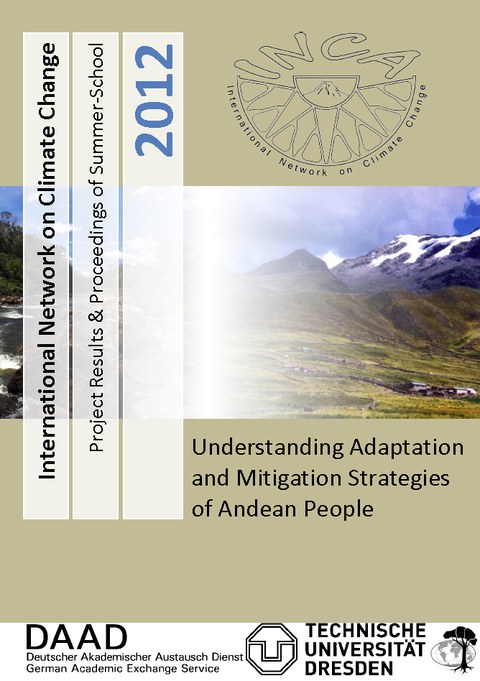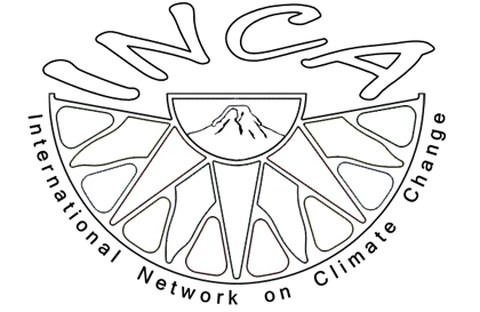INCA - International Network on Climate Change
UNDERSTANDING ADAPTATION AND MITIGATION STRATEGIES OF ANDEAN PEOPLE
[Global issue on a local scale]
Download INCA Dissemination Report 2013
Global issue on a local scale
For people living in the tropical Andes, climatic change is not a problem of the future - it's already there. Countries like Peru and Bolivia are bearing the consequences of climate change, such as retreat of glaciers and extreme weather events, which are directly affecting crops, livestock, biodiversity, and, last but not least, increasing levels of poverty. Almost the entire agricultural sector is suffering from increasing water stress due to melting glaciers and changing precipitation patterns. The productivity, especially of small-scale agriculture production systems is threatened, and thus the income of smallholder families is at risk.
As traditional inhabitants of the tropical Andean Region, these farmers historically have had to cope with extreme daily temperatures, unpredictable weather events from one year to the next, and a diversity of environmental conditions scattered across the elevations. This has made locals aware of the recurrent diversity of climate related impacts and its consequences. Understanding these adaptations has become one of the most important focuses of research into climate change impacts and vulnerability, since it provides essential knowledge for developing and transferring strategies towards a sustainable management in agriculture and agroforestry.
Objectives
- To organize and integrate in a Research & Development oriented network of relevant stakeholders on the topic of adaptation and mitigation on climate change in exemplary rural areas of the tropical Andes
- To conduct an analysis of the biophysical and socio-economic factors that influence livelihood strategies of traditional Andean farmers and to study how these systems are being affected by climate change
- To compare case study outcomes in order to generate and typify key indicators for livelihood strategies in the tropical Andean region and to comparatively assess trade-offs between the options that enhance food and income functions (adaption strategies) and those options that enhance the ecosystem functions (mitigation strategies)
- To elaborate models for the simulation and planning of successful interventions in farming and forestry systems in order to improve adaption and mitigation strategies
- Scientific exchange of adaption and mitigation strategies on climate change among local users, scientific community, state authorities; NGOs, as well as other relevant stakeholders in the tropical Andean region
- To contribute to the international debate within the UNFCCC from the bottom up to consider the needs and experiences of local stakeholders in using natural resources
Upshot
The main intention of the International Network on Climate Change (INCA) is to understand the situation of local farming and forestry systems in the tropical Andes, deriving and testing livelihood strategies for small-scale farms and indigenous communities together with local actors, scientists, experts, and students. The network contributes to transfer of technology and knowledge among all members and bridges the gap between the global discourse on climate change and local action.
Link: CIFOR weAdapt - INCA Peru
Link: CIFOR weAdapt - INCA Bolivia
Link: CAKEX Climate Adaptation Knowledge Exchange - INCA
Download Project-Overview (PDF)
[Removed image: http://www.maploco.com/vmap/6299926.png Alternative text: Locations of Site Visitors Image caption: ]




